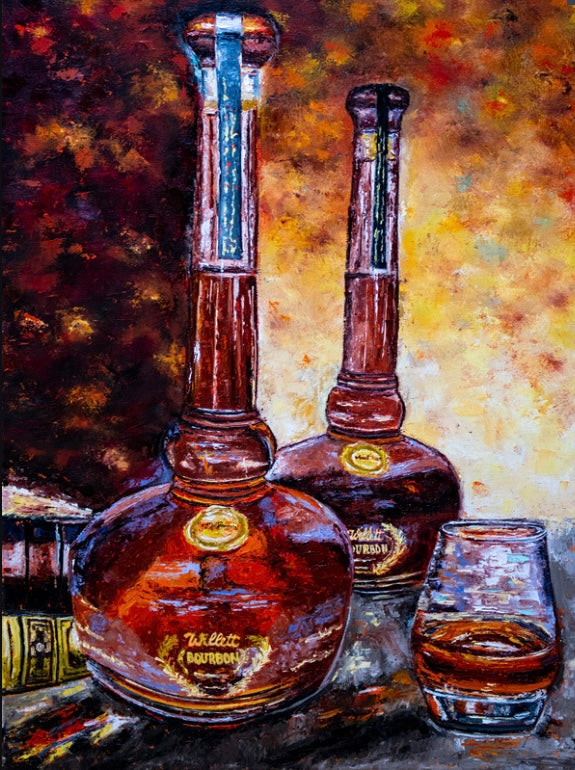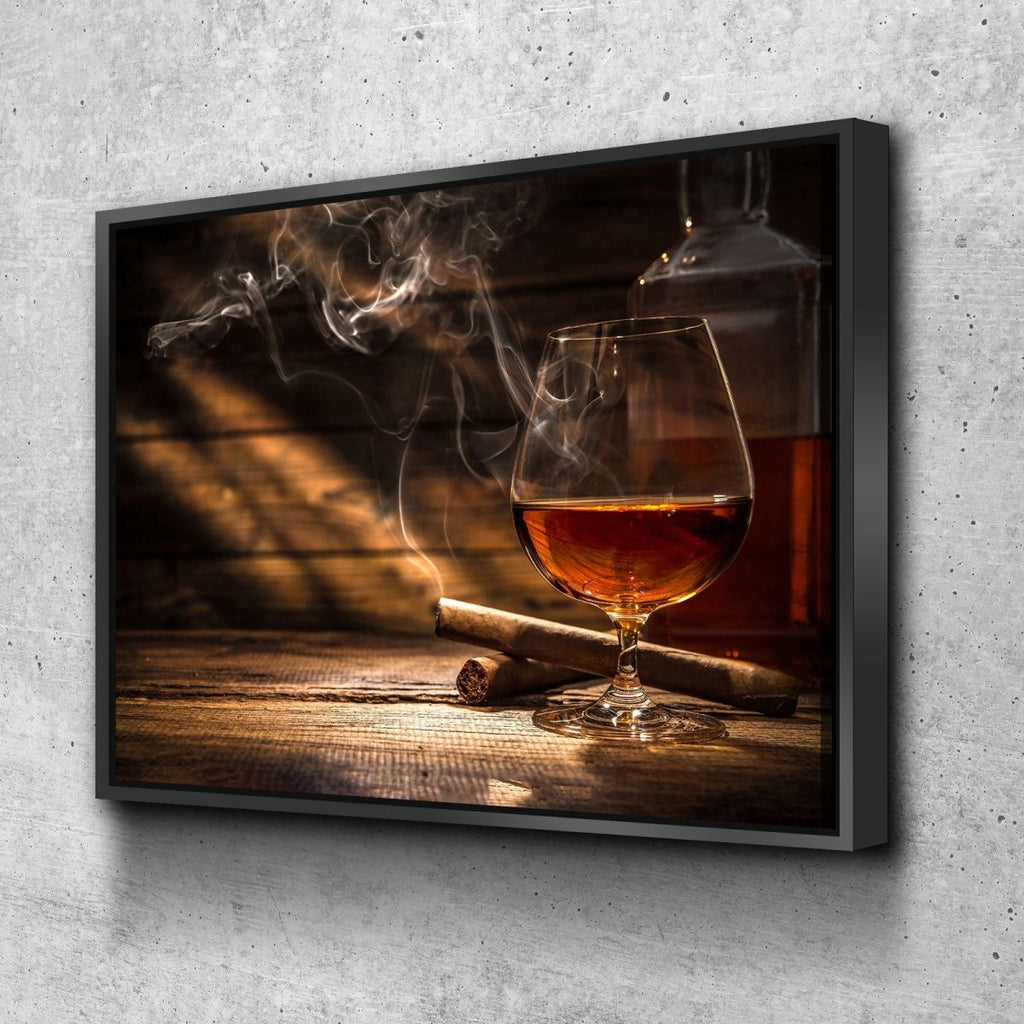Limited Edition: Discover Exclusive Bourbon Art Pieces for Collectors
Limited Edition: Discover Exclusive Bourbon Art Pieces for Collectors
Blog Article
The Importance of Whiskey Art in Celebrating Heritage and Workmanship in the Beverage Sector
The elaborate connection between bourbon art and the party of heritage and workmanship within the drink sector can not be overstated. Through thoughtfully developed labels and bottles, whiskey brands envelop their historic roots and the artisanal skills that specify their manufacturing techniques.
The Historical Origins of Whiskey
At the heart of scotch's allure exists an abundant tapestry of historical origins that map back to ancient civilizations. The beginnings of scotch can be linked to the purification methods of the Sumerians and Babylonians around 2000 BCE, where early kinds of fermented grain beverages started to emerge. It was in the Middle Ages that the art of purification advanced substantially, particularly in Ireland and Scotland, leading to the production of bourbon as we know it today.
The term "scotch" itself originates from the Gaelic word "uisce beatha," suggesting "water of life." This phrase emphasizes the cultural relevance of whiskey in Celtic societies, where it was usually connected with routines, celebrations, and common bonding. By the 15th century, purification became an acknowledged craft within reclusive communities, leading the way for the facility of lawful distilleries.
As trade paths increased, scotch's popularity grew, going beyond local boundaries and catching the rate of interest of aficionados worldwide. Whiskey Art. This historic trip shows not just the workmanship behind whiskey production however likewise its indispensable role in social and social contexts, marking it as a considerable beverage throughout background
Artistic Expression in Branding
Scotch branding stands as an engaging junction of virtuosity and business, where aesthetic identity plays an important function in forming customer assumption. The aesthetic appeals of scotch tags, packaging, and advertising products show not only the brand's story but also its core values and heritage. Through imaginative expression, distilleries share a story that resonates with consumers, evoking emotions and triggering links.
Using color, typography, and imagery in branding offers to set apart products in a saturated market. Traditional themes might stimulate a sense of credibility and craftsmanship, while modern-day designs can symbolize innovation and forward-thinking. This critical creative instructions enhances brand acknowledgment and commitment, allowing consumers to build a personal relationship with the scotch they choose.
In addition, artistic expression in branding commonly functions as a celebration of regional heritage. Distilleries often include local icons or historic references into their styles, producing a feeling of area that welcomes consumers to take part in a more comprehensive cultural experience. Ultimately, the creativity behind scotch branding not only improves aesthetic charm yet additionally improves the overall narrative of the brand, fostering a deeper gratitude for the craftsmanship and heritage embedded in each bottle.
Craftsmanship in Bottle Style
The creativity apparent in bourbon branding expands past aesthetic identification to include the workmanship associated with container style. Each bottle functions as a vessel not simply for the spirit within, but also for the tale it tells concerning its top quality, beginning, and custom. The layout procedure needs meticulous attention to information, as aspects such as closure, product, and shape contribute considerably to the overall perception of the scotch.
Craftsmanship in bottle design involves selecting high-quality glass that can enhance the scotch's color and quality, while also supplying a tactile experience for the customer. The shape of the container need to be both aesthetically enticing and practical, often showing the heritage of the brand. Numerous distilleries choose unique forms or embossed logo designs that evoke a feeling of credibility and history.
Furthermore, the tag design and typography play a vital duty in connecting the brand name's story. Realism Art. A well-crafted bottle not only mesmerizes the consumer's eye however also strengthens the brand name's dedication to quality and custom. This way, the craftsmanship of bottle design comes to be an important facet of the bourbon experience, combining artistry with an extensive respect for heritage
Cultural Significance of Whiskey Art
Celebrating practice and craftsmanship, the cultural importance of bourbon art goes beyond plain visual appeals, linking visit the site with the historic and social stories of the areas from which it comes from. Each bottle offers as a canvas, portraying the special stories, folklore, and practices that have actually formed local whiskey-making techniques. The detailed layouts frequently show the heritage of the distillers, integrating symbols and themes that reverberate with the society and worths of their neighborhoods.

In addition, scotch art plays a vital duty in public events and events, working as a substantial web link in between people and their shared experiences. By valuing the virtuosity in bourbon product packaging, customers grow a deeper understanding and regard for the craft, eventually improving their satisfaction of the beverage itself.
Modern Trends in Scotch Discussion
In recent years, the presentation of whiskey has evolved to mirror modern tastes and fads while still honoring conventional craftsmanship - Whiskey Art. Distilleries are progressively focusing on aesthetic elements that enhance the overall alcohol consumption experience, linking the gap between heritage and modernity
Innovative bottle styles have actually arised, usually including sustainable products and imaginative tags that inform engaging stories. Lots of brand names now work together with regional artists, infusing their items with unique aesthetic expressions that resonate with consumers. Furthermore, limited-edition launches are frequently packaged in collectible containers, including value and charm for connoisseurs.

Verdict
To conclude, whiskey art works as an important avenue for expressing the heritage and workmanship inherent in the drink industry. Through complex branding, ingenious container designs, and culturally significant imaginative aspects, bourbon brands properly honor their customs and link with consumers. This creative narrative not only boosts the recognition of bourbon yet additionally strengthens community identity and satisfaction amongst manufacturers. Ultimately, bourbon art plays an important duty in preserving and commemorating the abundant social tapestry of whiskey-making.


Craftsmanship in bottle layout entails picking top quality glass that can enhance the scotch's shade and clarity, while likewise supplying a responsive experience for the customer. In this means, the craftsmanship of bottle layout ends up being a crucial element of the bourbon experience, merging artistry with a profound respect for heritage.
In verdict, whiskey art offers as an important conduit i thought about this for sharing the heritage and craftsmanship inherent in the beverage sector.
Report this page